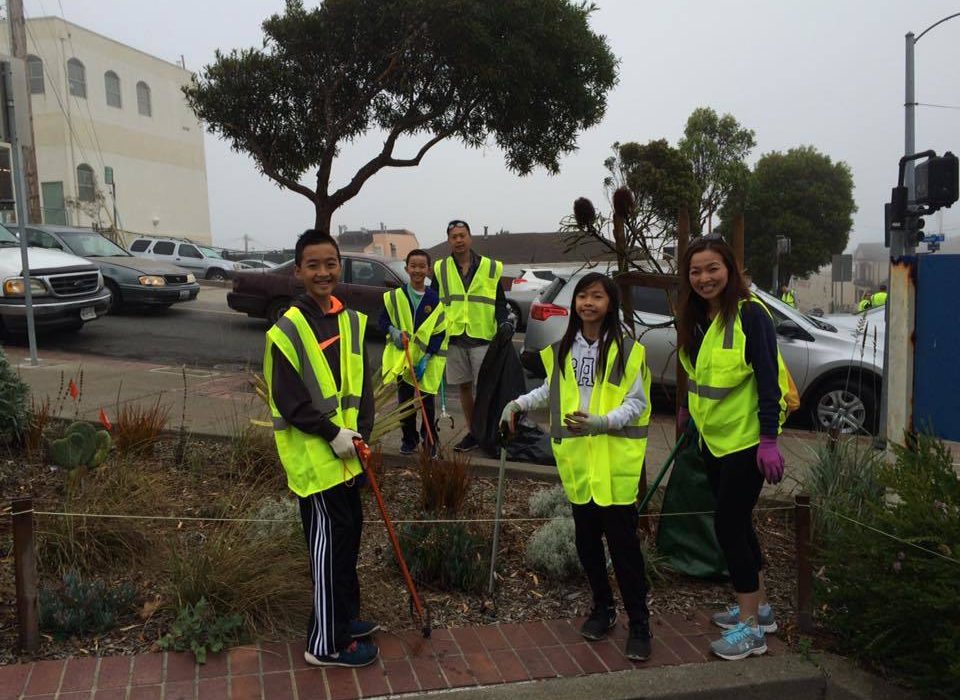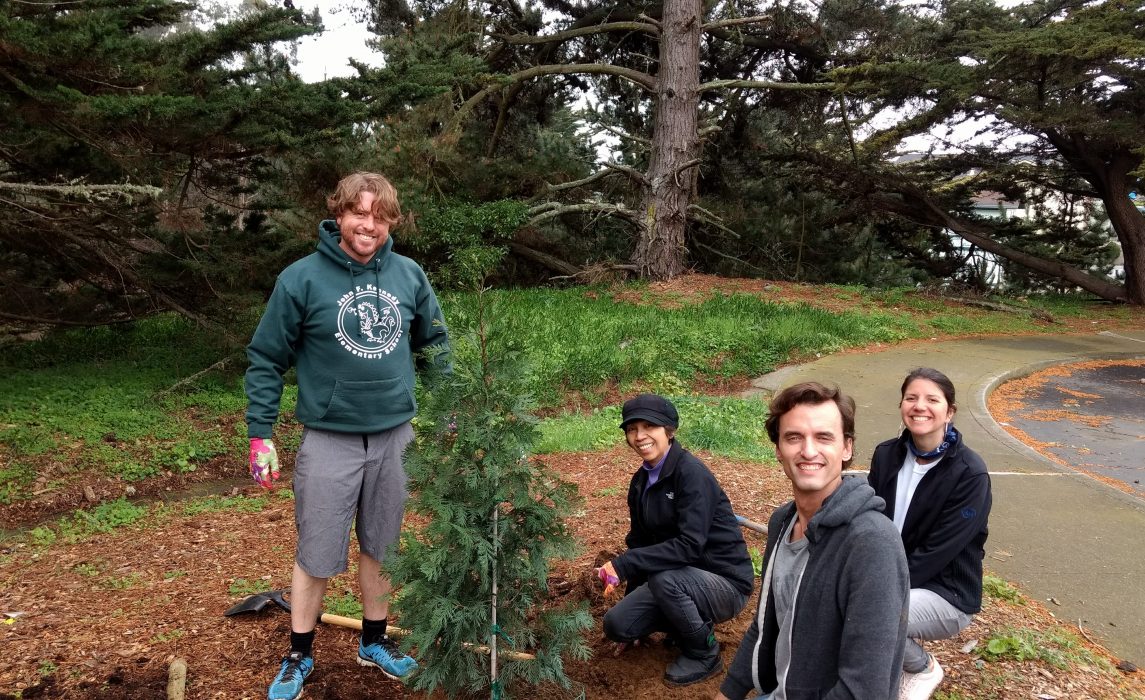Flood Mitigation in Daly City, California
The Problem
Daly City has few trees, leading to increased flooding.
- A densely populated city, the tree canopy covers less than five percent of Daly City’s land area, well below the national average of more than 25 percent.
- The lack of a robust root network, which absorbs water and prevents runoff, combined with drought-stricken soil makes Daly City vulnerable to localized flooding and landslides during rainstorms.
- This problem is especially acute in low-income areas, which have few trees and green spaces.
The Solution
The city’s Project Green Space boosted preparedness for natural disasters by empowering citizens to actively reshape the future of their neighborhoods.
- Cities of Service helped the city’s small staff and AmeriCorps VISTA members recruit participants from previously isolated communities.
- Through partnerships with a variety of businesses and nonprofits, religious organizations, and community groups, the city held several tree planting events.
- Residents and community groups planted trees and rain gardens and adopted them to ensure they were maintained.
- AmeriCorps VISTA members educated residents about the benefits of trees in their city and created a Drought-Tolerant Tree Guide to encourage further tree plantings.
The Results
Through Project Green Space, more than 250 volunteers planted over 120 trees and city staff and AmeriCorps VISTA members formed a number of new partnerships.
- The city has formed new relationships with community groups, schools, churches, and local businesses, helping them reach out to residents and coordinate volunteers.
- At JFK Elementary School, located in a low-income neighborhood, volunteers planted more than 30 trees native to the area.
- At the the Bayshore community center, the city held educational events for Boys and Girls Club and volunteers planted 20 trees.
- The city has also secured resources from West Coast Arborist, a local company, to keep Project Green Space going.
Keys to Success
With a high percentage of immigrant and non-English speakers living in Daly City, targeted and intentional outreach was necessary to reach residents in communities where the city had few existing connections. The sole city staff member on the project, then Sustainability Coordinator Stephen Stolte, and the AmeriCorps VISTA members worked tirelessly to form relationships, which were critical to the program’s success.
Cities of Service connected Stolte with other cities to help him problem solve and generate new strategies to reach isolated communities. Stolte, who was recently promoted to assistant to the city manager, has also begun to embed citizen engagement into the way the city operates, such as including it in the city’s budget documents, leading to a more connected and prepared city.
When people don’t know each other or they don’t engage with their government, they are less resilient. People benefit from relying on the relationships with each other. I think relationship building is the most important work we do.
Stephen Stolte, Assistant to the City Manager in Daly City, California


